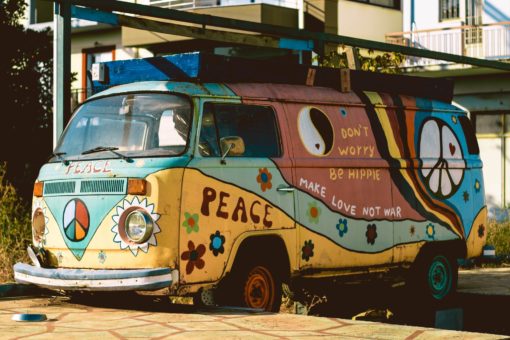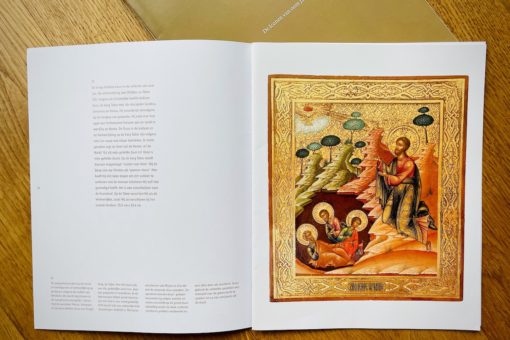
Why Clearing Personal Possessions Is A Smart Estate Planning Strategy
The Year of the Tiger begins on 1 February 2022 and for the Chinese, it means spring-cleaning. A task that symbolises ridding of bad luck and the old, to make room for good luck and all things new. It is a tradition performed with much fervour by Chinese communities around the world.
While not everyone celebrates the Lunar New Year, clearing and organising one’s belongings regularly is highly recommended, in fact, prudent to undertake. It is an opportunity to review the significance and usefulness of things we own and assess if still needed, wanted or suited in our life. Decluttering is a good habit to cultivate and it should be a crucial part of estate planning.
Leaving possessions for family members, heirs or executor of your will to deal with, is insensitive and callous to say the least. The burden of having to clear up and dispose of your personal property adds to their grief, prolongs their sadness and can even lead to resentment.

From first-hand experience, my late mother-in-law was a hoarder, not in a ‘disorder’ way but she had a habit of collecting artefacts, often with painstaking hand-written notes attached, to commemorate every meaningful occasion in her life. When she passed on in June 2020, my husband and I had a traumatic time going through a house choked full of silver and gold-rimmed fine-bone china, antique furniture that look out-of-place in modern homes, mementos, clothes, shoes, photo albums and boxes of diaries, one for every year since she turned 25.
Handling her stuff deepens our grief and adds to our sense of loss, especially my husband who has to be confronted with memories that he had forgotten. 20 months later to this day, we are still sorting through the final 10% of her stuff. I am sure it was not her intent for us to spend all these months and difficult moments clearing her belongings.
A good friend had a similar experience with his unmarried sister who died unexpectedly at 48, leaving behind a home filled with stuff. He spent 3 weekends sorting and clearing but had to finally call in an estate planning service to truck everything away as he has to work and could not afford the long commute after a heavy work week. The apartment, being rented, added to his haste.
Compare to another Dutch couple friends in their 70’s – let’s call them Bonnie & Clyde – who have been diligently decluttering by giving away possessions to people whom they believe will enjoy and appreciate their gifts. I received a set of Raffles Hotel tea spoons for our house-warming party in Amsterdam, which they had bought as souvenirs when they visited and stayed at the Singapore hotel in 1983.
On another occasion, a Peranakan-themed dinner party, they came with a heavy-bond hardcover book about sarong kebayas, with beautiful photographs of intricate designs along with captivating write-ups on the creation and role of the traditional costume in the Indonesian and Malaysian culture. The book is now proudly part of our coffee table collection.

Thoughtful gifts given to appreciative parties of your own choosing. Being able to share memories about the gifts and knowing they will continue to be treasured, isn’t that a fitting way to pass on beloved possessions? Doing this while physically healthy and clear-minded gives control and is a meaningful way to say goodbye to stuff that had mattered to you at one point in your life, to close those chapters gracefully and endearingly.
The things you own, end up owning you. ~ Tyler Durden, Fight Club
There are many other benefits of clearing personal possessions, which include:
- Preventing contention among heirs. Have conversations with intended heirs to understand their likes and preferences so you can bequeath accordingly or give them outright.
- Update your environment to reflect the person you are, your phase in life and values now. People change over time and what we like change too. I used to party quite a bit – who doesn’t when young? – and have amassed a collection of shots glasses from all over the world. While a reminder of my party days, they no longer hold any special place in my heart. Giving them to friends and donating to a neighbourhood pub releases much-needed space in my cabinet.
- Family heirlooms such as antique vases, crockery, furniture etc may not be appreciated by the younger generations and can in fact be burdensome, for example, silverware that requires constant polishing. Better to have these appraised, sold and bequeathed as cash instead.
- A fun way to relive your youth. Our memories can be selective and what we do not see often gets relegated to the back of our minds. Let these decluttering sessions be a sentimental journey revisiting your old self. Clearing my shots glasses brought back happy moments reminiscing about friends and colleagues who have faded from my memory.
- Freedom and lightness were what I felt when I cleared my physical possessions and digitised my life in preparation for travel in retirement. It gave me the space to explore options, such as the possibility of joining the tiny house movement if I so choose.
- More head space and less stress come with owning less things. No longer worry about battery leakage in stored equipment, dry-cleaning gowns regularly to prevent mildew/moth damage or paying additional freight insurance for delicate glassware when relocating from one country to another etc.
- Less complicated probate, which means easier, faster and less costly to administer. In this regard, clearing and giving away personal property while alive is a smart estate planning strategy. Don’t let your memories be tainted by leaving this formidable task to your loved ones.
The best way is to plan for regular clearing so as not to be overwhelmed, physically and emotionally. We all live in a consumer society and will likely accumulate new stuff so decluttering annually, quarterly or monthly is a good practice. The more frequent, the smaller the scale of undertaking.
Practise financial minimalism to counter modern-day consumerism and be more mindful of purchases to prevent lifestyle creep. Don’t wait until retirement to start cleaning up as can be seen from our friend’s sister’s sudden departure. The sooner you start, the earlier you will experience the sense of liberation and control. There are several ways to dispose of personal property, depending on the type of belongings: giving away, donating, selling or throwing away.
Drawing from the experience of his mother, my husband helped his devout 94-year-old godfather make a photo-book of the latter’s collection of catholic icons as a keepsake. This is another clever way to retain memories of meaningful items – by making photo-books where annotations can be included.

Or take a leaf from a creative friend who organises fun ‘Treasure Trove’ parties where she invites family, friends and neighbours over for wine and canapés, and shares personal anecdotes about some of her quirky pieces to highlight their importance. Guests are then invited to pick what they fancy from her collection of books, pottery, accessories, artwork and artefacts.
Much as we believe otherwise, the sad reality is that sentimentality does not transcend generations. The photographs, family heirlooms and treasured artefacts bear little significance for children, cousins, nieces, nephews and grandchildren. The more you declutter, the less your beneficiaries have to deal with.
The only thing you take with you when you’re gone is what you leave behind.
~ John Allston.
To a better legacy,
Savvy Maverick
(Main image: Sunset over the Oude Ijssel, Laag-Keppel)

2 thoughts
Nice quotes and again a nice article. What I understand from your advice is, with the last saying, that it is wise and meaningful to have the legacy given away before transcending to other spheres?
Glad you like the article, Ronald! Yes, clearing and giving away as much physical possessions while alive is leaving a good legacy.